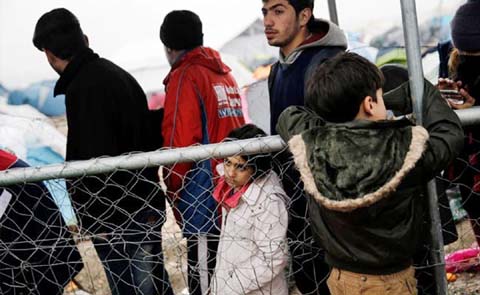
AP, Berlin :
Faced with more than 1 million migrants flooding across the Mediterranean last year, European nations tightened border controls, set up naval patrols to stop smugglers, negotiated an agreement with Turkey to limit the numbers crossing, shut the Balkan route used by hundreds of thousands, and tried to speed up deportations of rejected asylum-seekers.
European nations continue to squabble about whether, and how, to share the newcomers between them and the issues that drove refugees to Europe in the first place – such as Syria’s unrelenting war – are unresolved. Overall, 2,901 people have died or disappeared crossing the Mediterranean in the first six months of 2016, most along the dangerous central route to Italy – a 37 percent increase over last year’s first half, according to the International Organization for Migration.
Here’s where things stand in key countries:
Turkey is hosting some 3 million refugees, including more than 2.7 million Syrians. Most refugees there don’t get government support, but the agreement with the EU calls for the bloc to provide up to 6 billion euros ($6.8 billion) to help Syrian refugees in Turkey.
The deal also provides for one Syrian refugee from Turkey to be relocated to EU countries for each Syrian who arrives illegally in Greece and is sent back. So far only 1,152 have been resettled under the program – more than half of them to Germany and Sweden.
The numbers of migrants arriving in Greece have dropped dramatically since the March agreement with Turkey, but several thousand a month still make the journey, some 160,000 in the first half of this year.
About 70,000 migrants crossed the Mediterranean into Italy from January to June this year, similar to the same period last year. But with routes northward now restricted, there’s nowhere for them to go and, as smugglers resort to more dangerous practices, more migrants are dying en route. Migrants are sleeping in hotels, homeless shelters, train stations and tent camps. The Tuscan city of Capalbio is putting them in fancy villas and Milan is readying a jail to take in some.
Germany has seen a much-reduced number of newcomers this year after taking in hundreds of thousands in 2015, the majority of those entering Europe. Up to the end of July, 238,424 new arrivals were recorded – 92,000 of them in January, before the Balkan route was shut down. The figure has since leveled out at around 16,000 per month.

